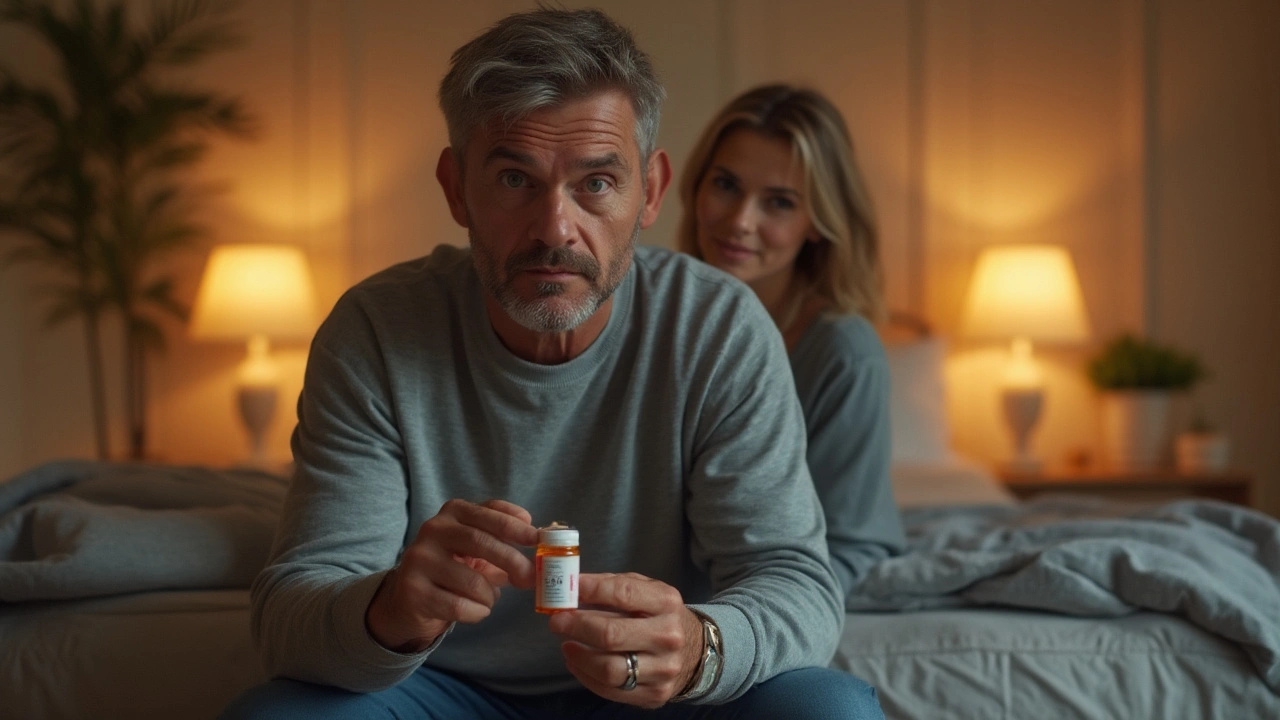ED Treatment: Fast, Safe Ways to Improve Performance
Struggling with erectile dysfunction can feel embarrassing, but you’re not alone and help is within reach. Below you’ll find real‑world steps you can take right now, plus a quick look at prescription choices and over‑the‑counter options. No jargon, just clear actions you can try today.
Prescription meds that actually work
Doctors usually recommend three classes of pills: phosphodiesterase‑5 inhibitors (like Viagra, Cialis, and Levitra), injection therapy (Alprostadil), and hormone therapy if low testosterone is the issue. The first group works for most men, lasts from a few hours to a full day, and has a good safety record when you follow the dosage. If you’re on nitrates for chest pain, skip PDE‑5 inhibitors—mixing them can be dangerous.
Ask your doctor for a trial of a low dose, then adjust based on how you feel. Many pharmacies now offer telehealth visits, so you can get a prescription without a long wait.
Lifestyle tweaks that boost results
Even the best meds won’t help if you ignore basic health habits. Cutting back on booze and quitting smoking can improve blood flow in just a few weeks. Aim for 150 minutes of moderate exercise a week—walking, cycling, or light weight training all raise nitric‑oxide levels, which support erections.
Watch your diet, too. Foods rich in flavonoids—berries, citrus, dark chocolate—help keep arteries flexible. A daily serving of leafy greens adds magnesium, another vessel‑friendly mineral.
OTC supplements: what’s worth trying
There’s a flood of “natural ED cures” online, but only a handful have solid data. L‑arginine (an amino acid) can help a few men, especially when paired with pycnogenol. Panax ginseng and yohimbine show modest benefits, but they can raise blood pressure, so check with a doctor first.
Always buy supplements from reputable brands; look for third‑party testing symbols on the label. If you feel a headache, dizziness, or flushing, stop and talk to a professional.
When to see a doctor
If erections don’t improve after a month of lifestyle changes and OTC attempts, schedule a check‑up. Persistent ED can signal heart disease, diabetes, or hormonal imbalance. A simple blood test and blood pressure check can uncover hidden problems.
Don’t wait for the situation to get worse—early detection saves time, money, and stress.
Bottom line: start with easy fixes like exercise, diet, and cutting harmful habits. If those aren’t enough, explore a low‑dose prescription pill via telehealth or in‑person. Add a vetted supplement if you want an extra boost, but keep your doctor in the loop. With the right mix, you’ll see faster, steadier results and regain confidence in the bedroom.

Cialis: Uses, Side Effects, Dosage & What to Expect
Posted by Desmond Carrington on 3/07/25
Dig into how Cialis works, its uses, real effects, safety tips, dosage, and things men wish they knew before trying this ED treatment. Everything you want to know—no sugarcoating.

Top 7 ZipHealth Alternatives for Men's Health Solutions in 2024
Posted by Desmond Carrington on 2/10/24
In today's fast-paced world, privacy and convenience in healthcare are more essential than ever. This article explores seven alternatives to ZipHealth in 2024, offering discreet and efficient telehealth services focused on men's health concerns. From erectile dysfunction to hair loss treatments, these platforms connect you with licensed healthcare professionals from the comfort of your home. Discover the benefits and drawbacks of services like Hims, Rocket Rx, and Ro to determine which best suits your needs.

